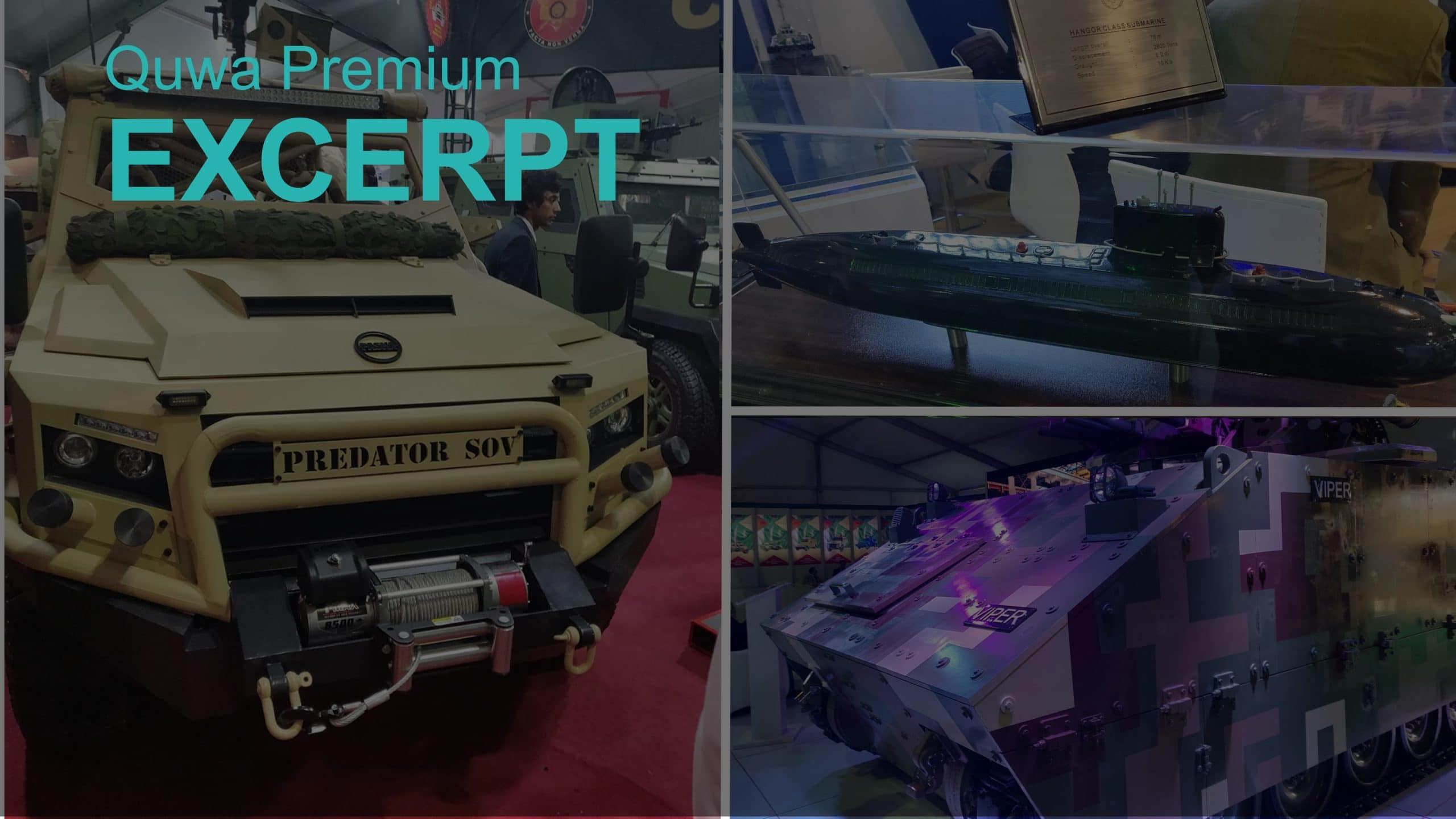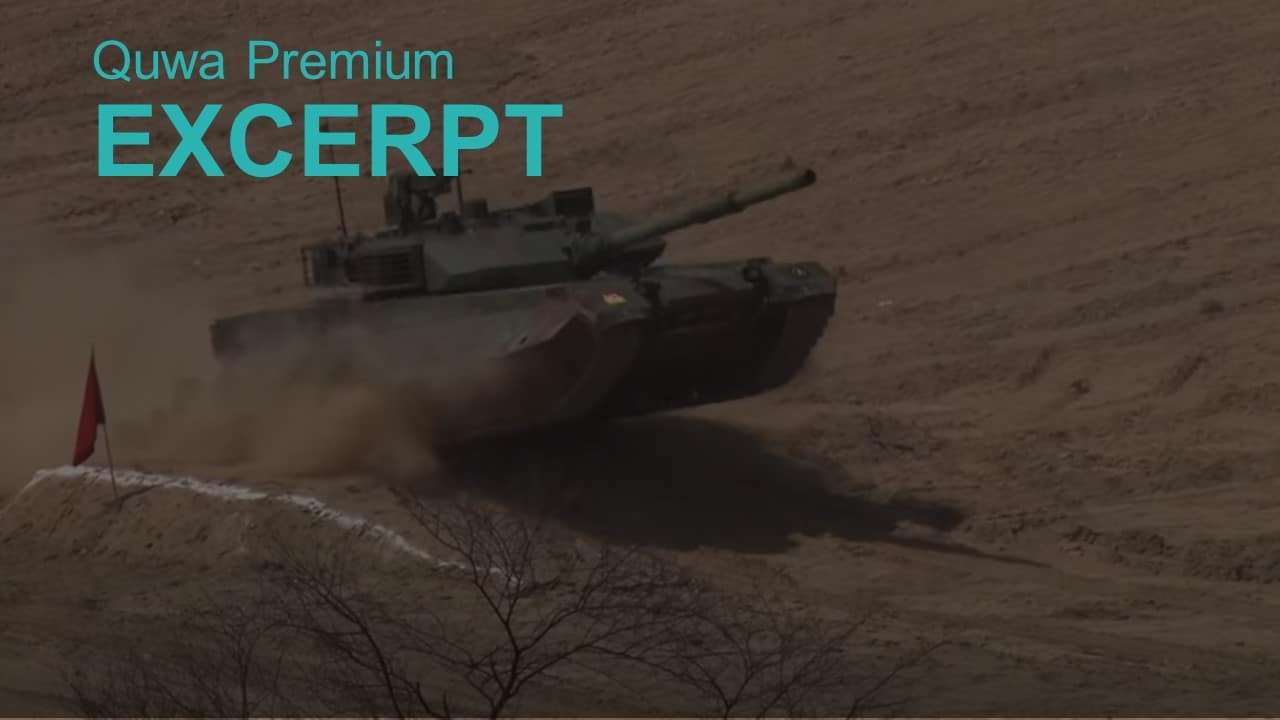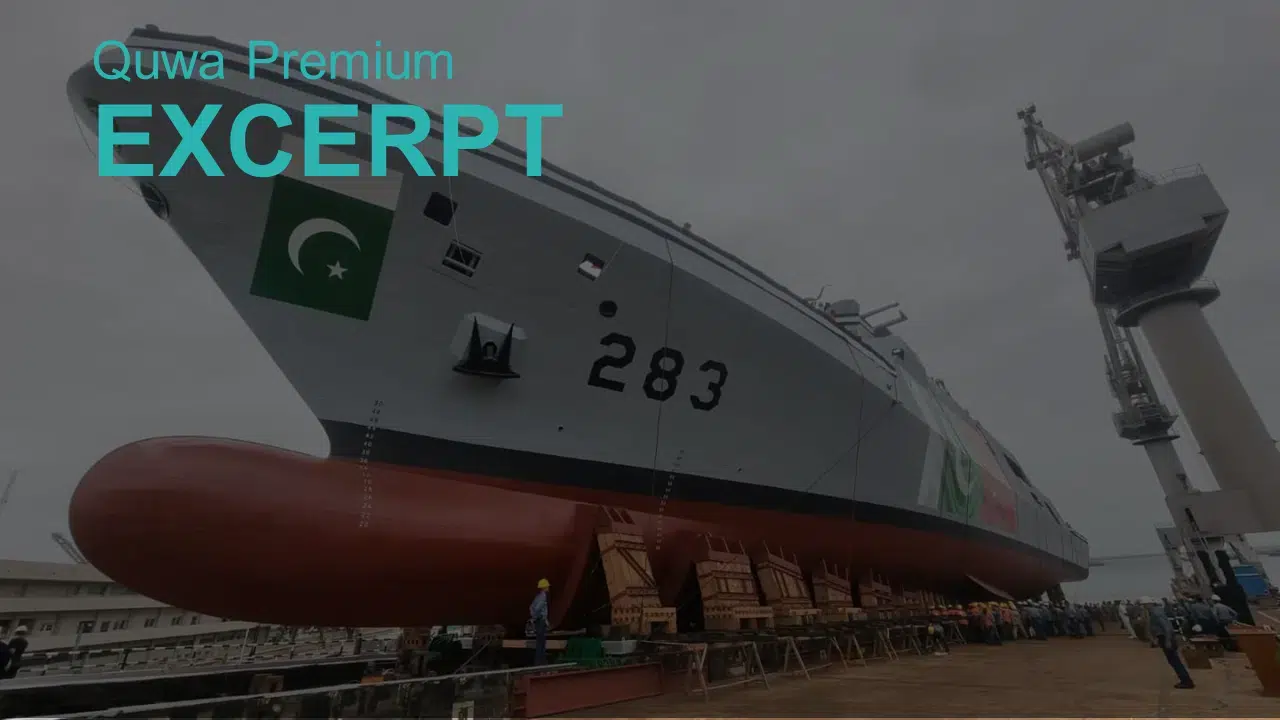2282Views

The Real Threat to Pakistan’s National Security – Part 2
Author Profile: Syed Aseem Ul Islam is PhD candidate at the University of Michigan, Ann Arbor, USA, specializing in adaptive and model-predictive flight control systems. He received his bachelor’s degree in aerospace engineering from the Institute of Space Technology, Islamabad, and his master’s degree in flight dynamics and control from the University of Michigan.
In part-one we discussed the policy level decisions needed to course correct Pakistan’s defence industry and make it a profitable sector that benefits the economically and financially benefits the state. These policy level decisions require bold leadership to make long-term plans that are above political bickering. Furthermore, these policies require long-term commitment if they are to have any chance of success.
Part-two will present a medium term, and perhaps more pressing, administrative policy plan that can rescue Pakistan’s deteriorating R&D capacity. Where part-one presented a roadmap for the establishment of new companies over decades, this article will present a roadmap for overhauling the administration of Pakistan’s extensive, existing network of military and strategic state-owned enterprises (MS-SOE). The final and third part will focus on measures that can act as “force multipliers” for R&D capability.
In no small part due to the veil of secrecy surrounding MS-SOE’s, little or no information is known to the Pakistani public, whose money is used to run these organizations. The public only learns of the successful tests of systems. However, it will not shock the reader to know that MS-SOE’s suffer from many of the same issues as other SOE’s in Pakistan (such as the infamous Pakistan International Airlines).
The systemic issues that have plagued other organizations in Pakistan are doubly true for MS-SOE’s because of the lack of oversight, and this is having some dramatic effects on the capabilities of these organizations for R&D in the military sphere. In part-one we have discussed why the loss of this R&D base is a threat to national security and why this R&D capacity is crucial for Pakistan in the coming years.
Unfortunately, as the need is becoming more crucial, Pakistan is actually losing this capacity. This article will attempt to analyze the reasons for this decline and suggest short-term solutions that should be implemented to dramatically increase the R&D productivity of Pakistani MS-SOE’s.
The Chairmen
Many issues start at the top and who leads these vital organizations is very important.
Firstly, leading an R&D organization is a specialized role that requires a deep appreciation of research, engineering, and real-world constraints. In other words, experience from managing other organizations or commanding military formations is irrelevant for someone who is to lead an R&D organization.
However, it is common knowledge that most (if not all) R&D organizations are headed by serving or retired military officers (perhaps with engineering degrees). It cannot be emphasized enough that an R&D organization is not a military unit and cannot be lead that way. Unfortunately, due to the nature of their training and their life-long careers, that is exactly how these military officers operate.
The idea of following all orders given by superiors is antithetical to the idea of research; research requires creative, lateral, and free thinking. Researchers work best when they can propose some directions of their own work. Researchers rarely do well under situations where a superior that does not appreciate technical nuances gives orders to “go and conduct research.” However, this is not a recommendation for preventing military officers from heading military R&D organizations…(finish the article by logging in or by subscribing to Quwa Premium).
The “Bloody Civilian” and Secrecy
It is an unfortunate reality of Pakistan’s R&D setup that most research is conducted by civilians, and yet they are looked at with suspicion by the military management of the MS-SOE’s. All civilian researchers sign the same oath to secrecy as military officers and live under strict, and sometimes strenuous, security measures, and yet they are viewed with suspicion. This demoralizes a researcher’s mindset.
It is perhaps due to Pakistan’s circumstances that its various intelligence, counterintelligence, and security departments are often roadblocks to the progress of R&D. There is no debate that secrecy is important in these areas, however, secrecy of research needs to be handled by subject-matter experts (SME) that understand the nuances of what is sensitive and what is not.
Unfortunately, in Pakistan, an unnecessary atmosphere of blanket suffocating secrecy is enforced by non-technical intelligence officers who do not understand the research they are protecting. This is frustrating on two counts for researchers: one, they are constantly hounded by intelligence officers for research activities that pose no threat to secrecy, and two, they are prevented from accessing and utilizing outside resources for research that could greatly enhance the speed of local R&D. An iron curtain overmanned by non-technical military officers stifling research is functionally overkill…(finish the article by logging in or by subscribing to Quwa Premium).
The Inefficiencies of Compartmentalization
Yet another side effect of overzealous secrecy is the over-compartmentalization of research. A single organization does not support or benefit other organizations due to their secretive natures. Furthermore, even within organizations, some departments are often unaware of work being done in other departments. Not surprisingly, this results in massive inefficiencies and must be eliminated. All these organizations exist for Pakistan and must serve Pakistan.
MS-SOE’s justify massive over-staffing due to the need to over-compartmentalize, and as a result, there is a ludicrous amount of duplication of effort. Allowing the researchers to communicate more freely with each other will increase the pace of technological advancement many folds. This flow of information can be managed. However, it is criminally wasteful for a country to do identical research in two or three places for no good reason…(finish the article by logging in or by subscribing to Quwa Premium).
End of Excerpt (897/1,936 words)
You can read the complete article by logging in (click here) or subscribing to Quwa Premium (click here).
For More Insights on Pakistan’s Defence Industry:


